Understanding Peer Mentorship in Recovery
Peer mentorship is an invaluable component in the recovery process for individuals dealing with substance use disorders and mental health challenges. With its foundation in shared experiences and mutual support, peer mentorship offers a unique approach to recovery that complements traditional treatment methods. Participants in peer mentoring programs benefit from empathy, guidance, and accountability from others who have walked similar paths. This article delves into the multifaceted benefits of peer mentorship, the roles mentors play, and the broader impact on recovery communities.
Peer Support: A Vital Tool in Recovery
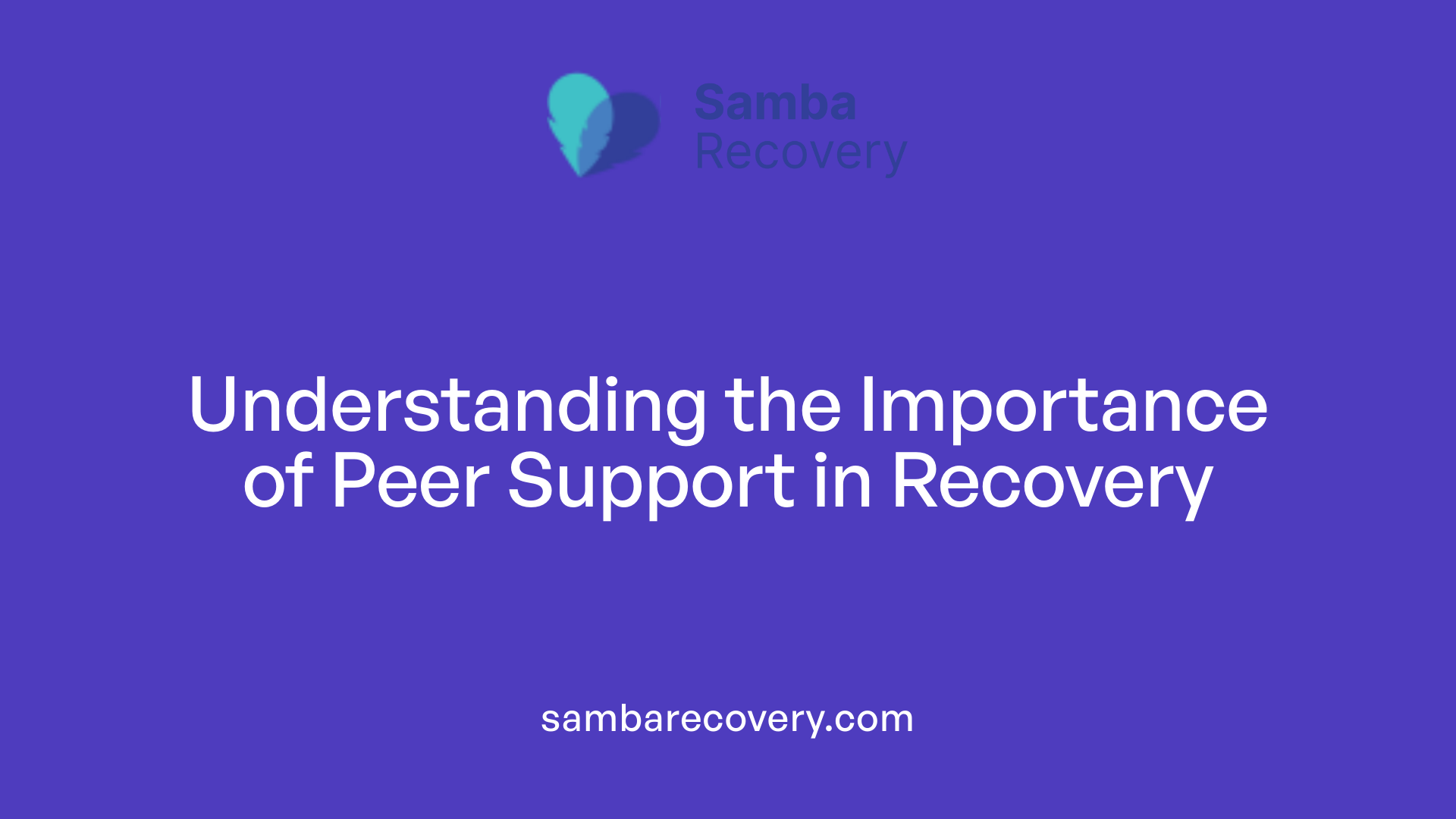
How does peer support assist in recovery from substance use disorders and mental health issues?
Peer support plays a crucial role in recovery from substance use disorders and mental health concerns by creating a nurturing environment filled with emotional comfort. Individuals experiencing similar struggles come together, fostering community and connection.
These alumni peer support groups are especially powerful for those who have completed formal treatment. They help maintain long-term engagement in recovery through shared accountability and ongoing conversations about coping strategies, trigger management, and relapse prevention—each essential for maintaining sobriety.
Emotional and community benefits
The focus on confidentiality in these groups helps establish a safe space, where members feel secure enough to share both challenges and victories. This openness not only diminishes feelings of isolation but also boosts motivation among participants.
Participants in peer support report higher satisfaction levels compared to standard treatment options. The emotional support provided can be transformative, equipping individuals with the strength to navigate difficulties and reinforcing positive coping mechanisms essential for the recovery journey.
Shared experiences
The shared experiences within peer support significantly enhance the effectiveness of recovery efforts. Participants often relate to each other’s narratives, which fosters understanding and compassion. This connection serves as a reminder that recovery is not only possible but achievable.
As individuals witness the progress of others who have experienced similar challenges, they gain hope and inspiration. Studies reveal that those engaged in peer support have a 45% higher chance of maintaining sobriety, underscoring the importance of these programs in the recovery landscape.
The Critical Role of Recovery Mentors
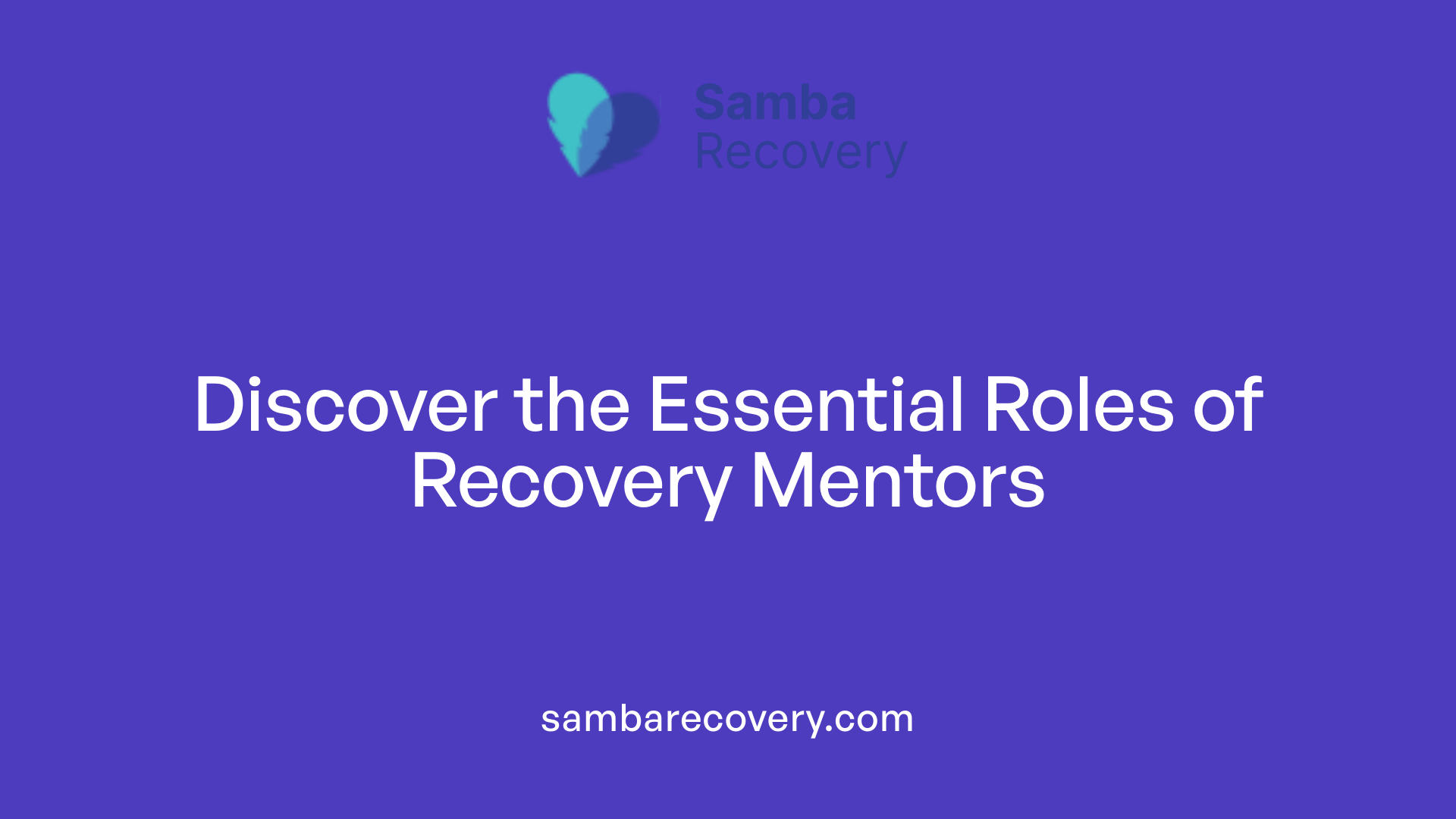
What roles do recovery mentors play in supporting an individual’s recovery journey?
Recovery mentors play a crucial role in supporting an individual’s recovery journey by providing guidance, accountability, and relatable support through their own experiences with addiction recovery. They assist in planning recovery strategies, setting achievable goals, and accessing essential resources to improve one’s quality of life.
Mentors serve as role models, sharing their personal experiences and recovery stories. This fosters meaningful connections which contribute to higher success rates in recovery. These connections encourage a sense of community and responsibility essential for maintaining long-term sobriety.
Guidance and Accountability
The presence of a mentor can increase accountability during the recovery process. Mentors guide individuals in making positive choices, addressing challenges, and reinforcing goals. This accountability is vital in navigating temptations and maintaining commitment to sobriety. Programs like those offered by Green Hill Recovery often incorporate academic coaching, career counseling, and life skills development, further aiding individuals in their recovery journeys.
Success Rates
Studies have shown that mentorship programs enhance the chances of achieving sobriety. Individuals engaged with sponsors and mentors report lower relapse rates and improved treatment retention compared to those without such support. A supportive mentor can significantly ease the transition from treatment to daily life, helping individuals feel less isolated and more connected, which is essential for sustainable recovery.
Key Benefits of Peer Mentoring
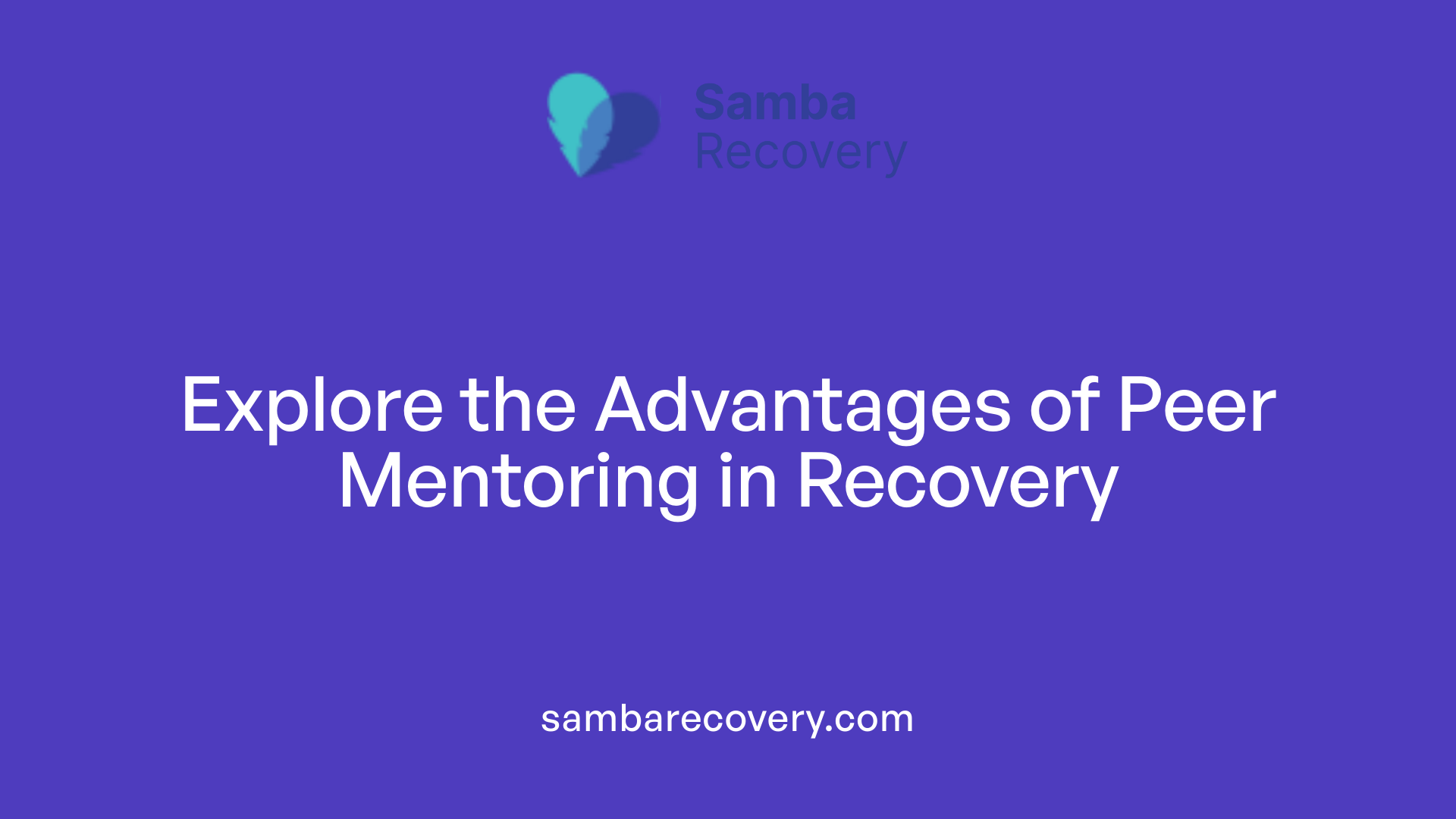
What are the specific benefits of peer mentoring in recovery?
Peer mentoring in recovery provides a range of significant advantages for both mentors and mentees. One of the foremost benefits is the enhancement of personal and professional growth. This occurs through increased self-awareness and development, allowing individuals to navigate their recovery journeys more effectively.
-
Personal Development: Both mentors and mentees build resilience and emotional intelligence by sharing experiences and strategies. This helps them to overcome personal challenges, fostering a sense of achievement and growth.
-
Transferable Skills: Participants gain valuable skills such as leadership, communication, and self-management. These skills are not only critical for personal recovery but also applicable across various career paths, making individuals more marketable in the job market.
-
Community Contributions: Mentoring relationships extend beyond individual growth; they promote a supportive college community. By assisting one another, participants support student success and engagement, creating a positive lifecycle of support.
-
Professional Networking: Engaging in a peer mentoring program expands networking opportunities. Both mentors and mentees build connections that may serve them well in future endeavors, enhancing their resumes and opening doors to potential employment opportunities.
In summary, peer mentoring in recovery equips individuals with essential tools for growth, development, and professional success, making the process of recovery not just about overcoming substance use but also about thriving in life.
Support Groups: The Backbone of Recovery
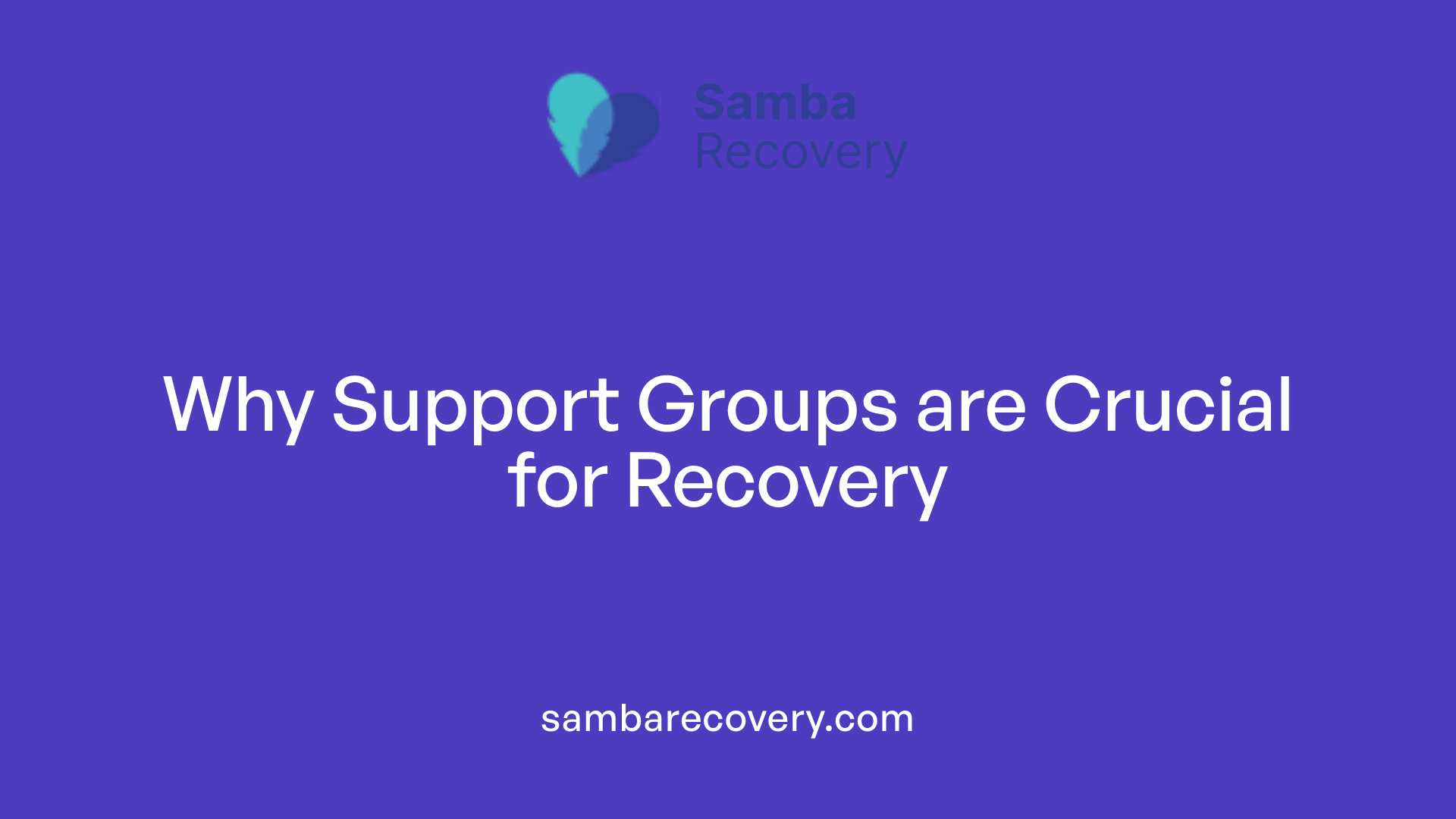
Why are support groups an essential component of recovery?
Support groups are an essential component of recovery because they provide individuals with a safe space to connect with others facing similar challenges, fostering a supportive community. Many individuals experience substance use disorders alongside mental health issues. These groups serve as vital resources, especially for those not pursuing professional treatment or seeking to maintain sobriety post-program.
The shared stories and experiences within support groups illuminate the real-life consequences of addiction. This exposure reinforces the importance of their recovery journey. Participants gain insights from peers who have navigated similar obstacles, instilling hope and motivating them to persist in their recovery efforts.
Additionally, support groups promote self-acceptance and offer emotional support in a judgment-free environment. This supportive atmosphere has been instrumental in improving participants’ chances of achieving and maintaining long-term recovery. Active engagement in such groups has shown to reduce relapse rates significantly, enhancing overall health outcomes and solidifying their vital role in the recovery process.
Community Support and Reducing Relapse Rates
A robust community built through peer support is crucial in sustaining sobriety. Programs like Alcoholics Anonymous and Narcotics Anonymous not only provide structured environments for support but also cultivate a sense of belonging among participants. This communal bond fosters accountability, as members help each other uphold lifestyle changes necessary for sobriety.
Research indicates that individuals actively involved in peer support networks experience a greater sense of accountability and reduced feelings of isolation. Consequently, these groups contribute to substantial reductions in relapse rates, especially in challenging demographics such as those with histories of homelessness or incarceration. Thus, support groups not only enhance recovery prospects but also reinforce a sense of community that is integral for long-lasting sobriety.
Building Community Through Mentorship Programs
How do peer mentorship programs facilitate community building in recovery environments?
Peer mentorship programs are essential in facilitating community building in recovery environments. They connect individuals seeking sobriety with mentors who have successfully navigated similar challenges, fostering a supportive atmosphere. Through shared experiences and stories, mentors help participants feel understood and accepted, which significantly reduces feelings of isolation.
Strengthening Resilience and Accountability
These programs enhance resilience and accountability among participants. Mentors guide their mentees in setting realistic goals and connecting them to essential resources, encouraging personal growth throughout the recovery process. They play a pivotal role in providing emotional support during difficult moments, reinforcing commitment to recovery objectives. By participating in group sessions or skills-building initiatives, individuals engage with others, which is vital for promoting social connections and wellbeing.
Positive Recovery Outcomes
The community built through peer mentorship leads to markedly improved recovery outcomes. When individuals feel supported and connected, they are more likely to maintain their sobriety and work toward personal development. Research indicates that peer mentorship not only helps reduce relapse rates but also increases participation in recovery programs. This collaborative environment nurtures mutual support and shared accountability, significantly contributing to long-term success in recovery.
The Impact of Shared Experiences
Empathy and Compassion
Peer support fosters a deep sense of empathy among participants, as individuals who have faced similar struggles connect on a personal level. This shared understanding creates a compassionate environment that is essential for emotional healing. In peer support settings, members often share their own experiences, allowing others to feel seen and heard in their struggles, which can be incredibly validating.
Reducing Stigma
Engaging in peer support groups helps to dismantle the stigma associated with substance use disorders. When individuals openly discuss their challenges and victories, it normalizes the experience of recovery, making it easier for others to seek help. The shared stories from peers provide a non-judgmental backdrop for individuals to confront their issues, promoting acceptance and understanding within the recovery community.
Mutual Aid
The concept of mutual aid is at the heart of peer support structures. Participants are not only recipients of support but also contribute by sharing their own insights and encouragement. This reciprocal nature enhances the sense of community, as members become accountable not just to themselves, but also to one another. It builds a network of support that is crucial for sustained recovery and emotional resilience.
| Impact of Shared Experiences | Benefits | Examples |
|---|---|---|
| Empathy and Compassion | Creates understanding | Shared recovery stories |
| Reducing Stigma | Normalizes recovery experiences | Open discussions in groups |
| Mutual Aid | Encourages accountability | Peer mentoring relationships |
Data-Driven Evidence of Success
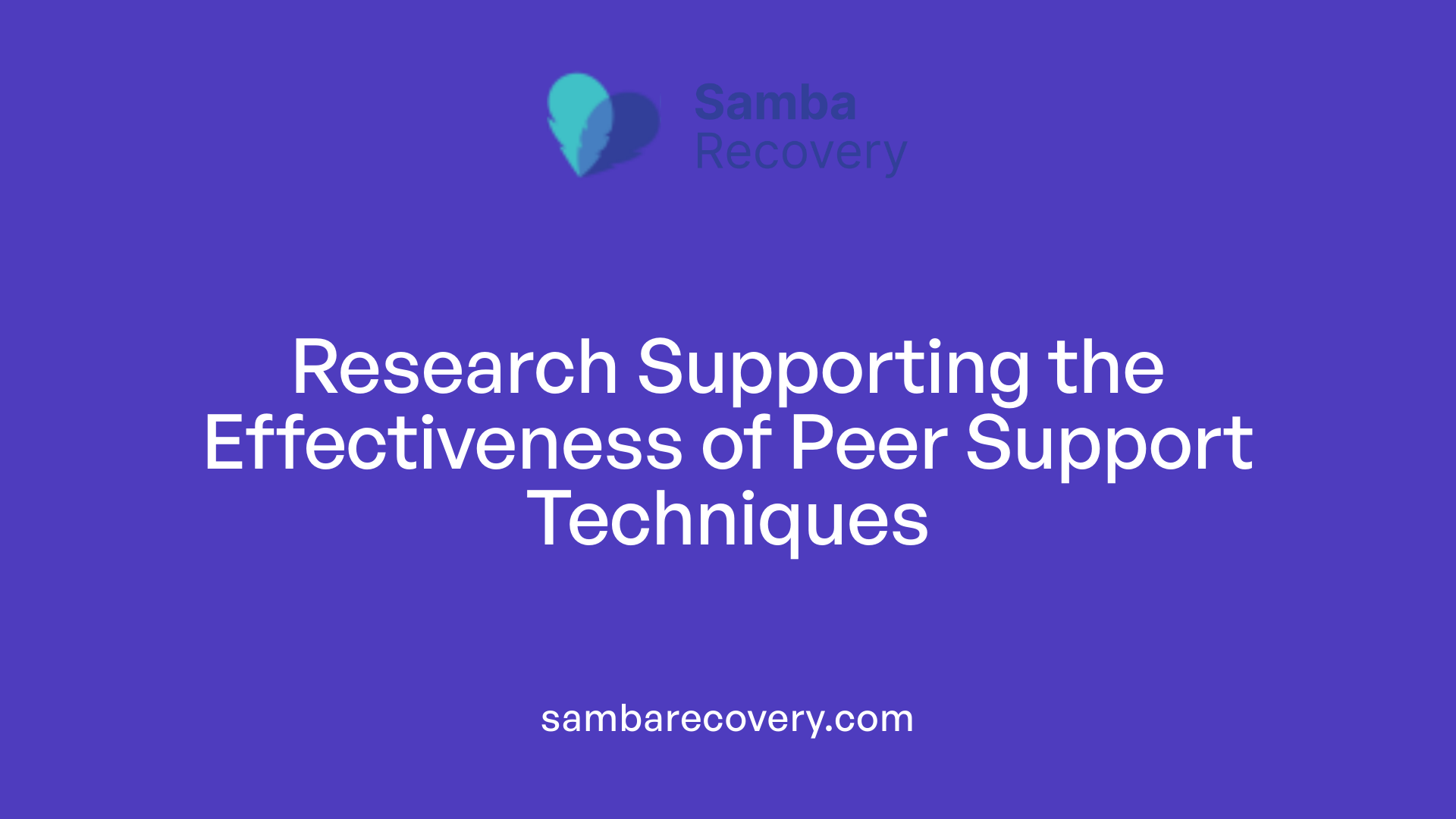
Research Studies
Multiple research studies highlight the effectiveness of peer support in addiction recovery. For instance, a study from the Substance Abuse and Mental Health Services Administration (SAMHSA) indicated that participants in peer support programs enjoy a 45% higher chance of maintaining sobriety compared to those who do not engage in peer support.
Effectiveness of Peer Support
Peer support groups, including various formats like 12-step programs, have been shown to improve treatment engagement, self-efficacy, and personal connections among individuals facing similar challenges. Studies demonstrate that participation leads to significant improvements in rates of abstinence and overall satisfaction with treatment.
Reduction in Relapse Rates
Peer support has proven crucial in reducing relapse rates, especially for high-risk populations, such as individuals with past incarceration or homelessness. Findings reveal that structured peer mentoring programs not only lower substance use but also enhance recovery outcomes, creating strong bonds among participants. In the Mentorship for Addiction Problems (MAP) study, those receiving mentorship alongside standard treatment had significantly lower substance use days than those receiving treatment alone, emphasizing mentorship’s role in successful recovery.
Practical Aspects of Joining a Peer Mentorship Program
Participating in Peer Mentoring
Joining a peer mentorship program is a transformative step for those recovering from substance use disorders. Individuals can typically find these programs through local recovery centers, community health organizations, or online recovery platforms. Registration often involves a brief intake assessment to match participants with mentors who share similar experiences and goals. This personalized approach fosters a comfortable environment for participants, enhancing the likelihood of meaningful connections.
Skills and Qualities of Mentors
Effective mentors possess several important qualities, such as empathy, patience, and strong communication skills. They should be able to share their recovery journey openly and guide mentees through their challenges with relatability and compassion. A successful peer mentor not only supports but also encourages accountability, helping mentees establish and achieve personal recovery goals, ultimately nurturing both their own growth and that of their mentees.
Emotional and Motivational Support
One of the greatest benefits of peer mentorship is the emotional and motivational support it provides. Mentors are invaluable in helping mentees feel understood and less isolated during their recovery journeys. Sharing experiences cultivates a sense of community, instilling hope and resilience. Additionally, mentors offer practical advice and strategies for handling challenges, empowering individuals to navigate their path toward sustained recovery with confidence.
Empowering Recovery Through Peer Mentorship
Peer mentorship in recovery is more than just a support system; it’s a transformative force that empowers individuals to take charge of their recovery journeys. By bridging the gap between professional treatment and everyday challenges, peer mentorship provides ongoing support, fosters resilience, and nurtures a sense of community essential for long-term recovery. As individuals continue to empower one another through shared experiences and compassionate guidance, the positive impact of peer mentorship in addiction recovery will continue to flourish.
References
- Benefits of peer support groups in the treatment of addiction – PMC
- The Benefits of Peer Mentoring Programs in Addiction Recovery
- The Benefits of Peer Mentoring Programs in Addiction Recovery
- The Role of Peer Support and Mentorship in Addiction Recovery
- 10 Benefits of Peer Support in Addiction Recovery | All Points North
- Mentor: How Mentorship Helps in Recovery
- Mentorship for Addiction Problems (MAP): A New Behavioral …
- Peer Support Workers for those in Recovery – SAMHSA
- The Power of Peer Mentoring in Young Adult Mental Health






